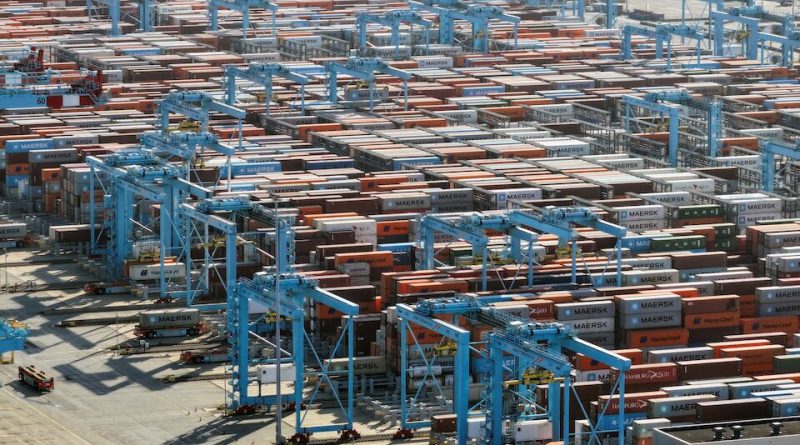Rotterdam Port Lashers Hit Pause: Talks to Forge New Wage Deal Bring Hope for Smooth Operations
Striking lashers at Europe’s largest port suspend walkout, opening the way for productive talks and a faster flow of goods across Rotterdam.
In a welcome development for Europe’s busiest port, hundreds of lashers at the Port of Rotterdam will suspend their strike starting Monday, as union leaders and employers gear up for renewed discussions to reach a fair and lasting wage agreement.
The decision marks a positive step toward resolving labor tensions and restoring smooth cargo operations at the vital hub.
The strike, which began last Wednesday, involved approximately 700 lashers—workers responsible for securing cargo on container ships.
While the walkout temporarily slowed port operations and caused a backlog of container ships, the new agreement to pause industrial action demonstrates the commitment of both sides to dialogue, collaboration, and shared problem-solving.
The FNV union, representing the lashers, and port companies reached the agreement following a court hearing on Saturday. The court approved a suspension of the strike from 7 a.m. on Monday until the same time on Friday, providing a five-day window for negotiations.
Both sides will meet on Sunday morning to continue talks aimed at establishing a new wage deal that recognizes the vital contribution of lashers to port operations and the wider economy.
“This is a positive and constructive step,” said a spokesperson for the FNV union. “Our members’ concerns are being heard, and we now have a real opportunity to reach a fair agreement that benefits both workers and the port industry. Pausing the strike shows that compromise and communication can lead to productive solutions.”
Port authorities and companies operating in Rotterdam also welcomed the suspension, highlighting the importance of ensuring smooth cargo movement for European and international trade. “We are encouraged by the decision to suspend the strike,” said a representative of one of the major container companies.
“This gives us a chance to continue discussions with the union in a focused, solution-oriented environment, while minimizing disruption to businesses and the supply chain.”
The temporary halt in the strike comes at a crucial time. Rotterdam, as Europe’s largest container port, plays a central role in the transport of goods between Europe and the rest of the world. Ensuring uninterrupted operations is vital for maintaining supply chains for everything from consumer goods to industrial equipment.
The proactive approach by both lashers and employers signals a shared commitment to economic stability and workforce wellbeing.
Analysts note that the five-day suspension not only provides time for negotiation but also sets a positive precedent for future labor relations at the port.
By demonstrating that disputes can be managed through dialogue rather than prolonged industrial action, both parties reinforce the importance of collaboration in a sector critical to the European economy.
“This is an encouraging example of how labor and management can work together to find solutions,” said an industry analyst. “Temporary pauses like this allow for thoughtful negotiation, prevent prolonged disruption, and ultimately strengthen relationships between employers and employees.”
In addition to restoring operational efficiency, the pause in the strike reflects a broader commitment to worker welfare, fair wages, and sustainable labor practices.
By engaging in talks in good faith, both the FNV union and port companies are taking concrete steps to ensure that workers’ voices are respected, while maintaining Rotterdam’s role as a global logistics hub.
The five-day suspension also gives businesses time to plan and adjust operations, reducing uncertainty for companies relying on the steady flow of imports and exports.
Many European and international firms are closely monitoring developments at the port, and the temporary halt to industrial action provides reassurance that the supply chain will remain resilient.
Looking ahead, the discussions scheduled for Sunday could set the stage for a long-term wage agreement that balances the needs of lashers with the operational demands of the port.
By prioritizing collaboration, transparency, and shared responsibility, the negotiations hold promise for a positive outcome benefiting workers, employers, and international trade partners alike.
With the strike suspended and talks underway, Rotterdam’s port operations are expected to stabilize rapidly, ensuring that goods continue to flow smoothly across Europe.
The latest developments highlight a constructive path forward, demonstrating that proactive engagement, compromise, and respect for labor rights can strengthen one of Europe’s most vital economic arteries.


